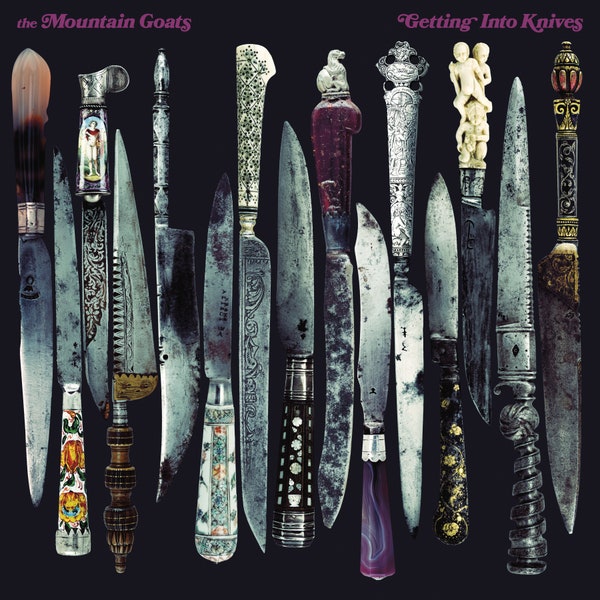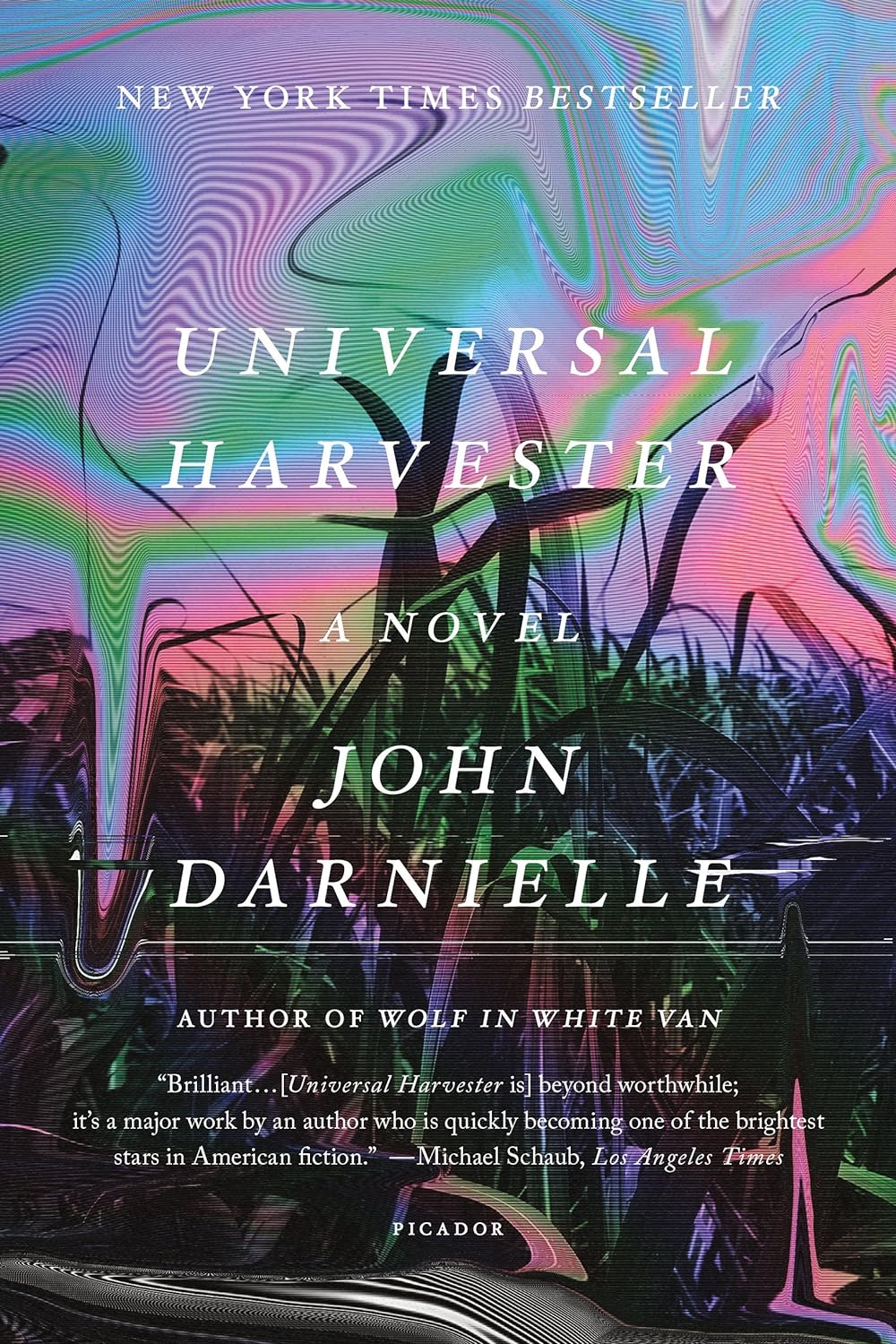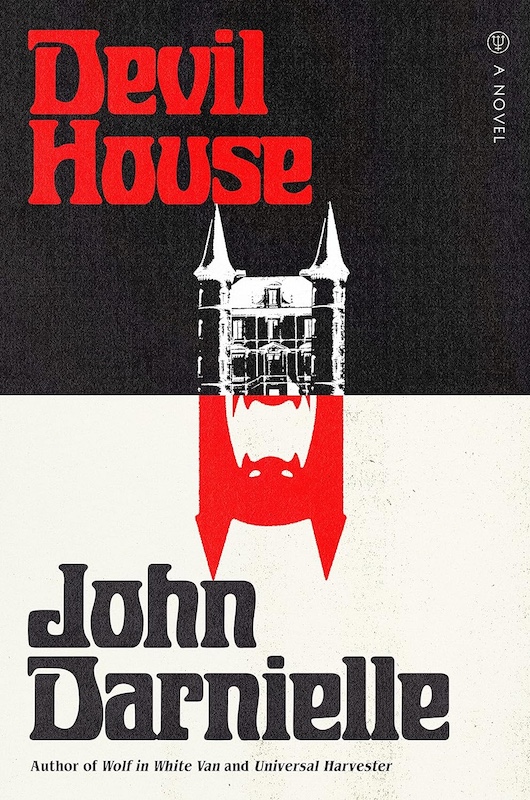Borges Music: The Mountain Goats
- At November 25, 2021
- By Great Quail
- In Borges
 0
0
The Mountain Goats
(1991–Present)
Music, states of happiness, mythology, faces belabored by time, certain twilights and certain places try to tell us something, or have said something we should not have missed, or are about to say something; this imminence of a revelation which does not occur is, perhaps, the aesthetic phenomenon.
—“The Wall and the Books”
The Mountain Goats are a musical project centered on singer-songwriter John Darnielle, who first used the moniker when releasing cassettes recorded on a Panasonic boombox in 1991. While some of these demos were solo works, others featured a rotating cast of guests, including reggae singer Rachel Ware and Indie folkster Simon Joyner. Through this series of recordings, Darnielle established a reputation as a passionate storyteller whose erudite lyrics encompassed a broad range of emotional and intellectual themes. This DIY period culminated with All Hail West Texas. Now considered a classic of the “low-fi” movement, the album was recorded on Darnielle’s RX-FT500, and billed itself as “fourteen songs about seven people, two houses, a motorcycle, and a locked treatment facility for adolescent boys.”
In 2002 the Mountain Goats released Tallahassee, their first album produced for a major label (4AD), and the first recording backed by a full-fledged band. A concept album about a divorcing couple on the edge of an alcoholic meltdown, Tallahassee was a showcase for Darnielle’s sophisticated lyrics and urgent vocal delivery; a wordy, nervous poetry more spoken than sung. Although it was greeted with some degree of puzzlement by the musical press, Tallahassee was destined to become an underground classic: a post-millennial soundtrack to disillusionment. If Radiohead’s OK Computer approached the impending twenty-first century with a kind of impersonalized alienation and dread, Tallahassee was what waited on the other side; ironic detachment stripped away to expose the raw, emotional landscape of post-911 America. The Mountain Goats followed this breakthrough with a series of remarkable albums, with Darnielle eagerly embracing the messy contradictions of the human heart: the violent flashpoints between love and hatred, the unpredictable shifts between fragility and resilience, grand fantasies of vengeance contracting into spasms of self-loathing; even moments of unexpected grace and forgiveness.
Along with clever wordplay and a fondness for literary and Biblical allusions, Darnielle’s songs are marked by a willful ambiguity on the part of the narrator. While many of these songs express the point of view of ostensibly fictive “characters,” they have an intimate, autobiographical quality that blurs the lines between fiction and confession. While the Mountain Goats are frequently compared to other “literary” bands such as the Decemberists, with the latter, one is pretty sure Colin Meloy has never been a chimney sweep! But with Darnielle, things aren’t so clear—just who is “getting into knives,” John? The fact that Darnielle’s vocal delivery rarely varies in range or intonation only underscores this ambiguity. Like other idiosyncratic songwriters such as Lou Reed, Jeff Mangum, and Robyn Hitchcock, John Darnielle has constructed a unique personal mythology one lyric at a time. (One interviewer famously asked Lou Reed if he actually did everything he sang about. Lou replied with deadpan scorn: “Of course not. I’d be dead.”)
Less cryptic than Dylan’s Highway 61 and less gothic than Nick Cave’s hinterlands, Darnielle’s lyrical universe is still an open text; and like any good mythology, it’s got symbols, archetypes, and enigmas to spare, a Borgesian “axis of innumerable relationships” where listeners discover, project, or interpret their own personal meaning. It’s little wonder the Mountain Goats have become a cult band, attracting an eclectic group of followers known for their sincerity, intellectualism, and devotion—there’s even a podcast called I Only Listen to the Mountain Goats!
Borges-Related Works
Wolf Count (2020)
From the 2020 album Getting Into Knives, this song was inspired by Borges’ poem “Un lobo.” Description below.
Wolf Count (2020)

The Mountain Goats: Getting Into Knives
CD: Merge Records MRG716 (2020)
Purchase: CD [Amazon], Digital [Bandcamp]
Online: YouTube [Wolf Count | Album Playlist]
Track Listing
1. Corsican Mastiff Stride (2:20)
2. Get Famous (3:19)
3. Picture of My Dress (4:20)
4. As Many Candles as Possible (3:24)
5. Tidal Wave (5:25)
6. Pez Dorado (4:56)
7. The Last Place I Saw You Alive (4:40)
8. Bell Swamp Connection (5:50)
9. The Great Gold Sheep (5:03)
10. Rat Queen (4:09)
11. Wolf Count (3:49)
12. Harbor Me (4:07)
13. Getting Into Knives (5:14)
Musicians
John Darnielle—vocals, guitars, piano
Peter Hughes—electric bass, upright bass
Matt Douglas—keyboards, woodwinds, guitars, accordion, backing vocals
Jon Wurster—drums, percussion
The Mountain Goats began the 2020s with the fantastically-named Getting Into Knives. After a string of albums focusing on more idiosyncratic subjects such as Lucha libre and Dungeons and Dragons, Getting Into Knives was seen by some fans as a return to the more commercial album-making of Heretic Pride. Like that excellent 2008 album, Getting Into Knives focused on the Mountain Goats as a band with Hughes and Wurster, rather than “John Darnielle and whoever’s in the room with him.” Certainly Knives covered a broader range of subjects, themes, and moods than the last few albums—and more animals, too! “Wolf Count” is the fourth song on Knives to feature an animal in the title. (Which is one more than Pink Floyd, if you don’t include all the pigs separately.) (But still not as many as the Handsome Family.)
The song was loosely inspired by Borges’ poem, “Un lobo.” First published in Atlas in 1984, “Un lobo” was written in the twilight of Borges’ life, when he was completely blind and traveling across America with María Kodama. He’d be dead in two years. It’s easy to see why Borges projected himself into the wolf, “furtive and gray in the final twilight.” But the singer/narrator of “Wolf Count” seems cut from a different cloth; indeed, the lyrics suggest the wolf may kill the lord of the hunt, not the other way around. It’s a telling inversion, perhaps reflecting the difference in age between the presumed narrators. Or perhaps it’s just a difference in temperament. Wolves have always served John Darnielle as powerful symbols, from his darkly-triumphant screed “Up the Wolves” to the title of his first novel, Wolf In White Van. They also appear in one of Knives’ standout tracks, “As Many Candles as Possible.”
Darnielle Lyrics: “Wolf Count”
Live among the starving wolves
Get lost inside the pack
Pull at a carcass til my tooth breaks
Your grown-up teeth—
They don’t grow back,
They don’t grow back.
Find a clearing in the forest
Wait for word from the battlefront
Sing to the moon until your throat’s raw
The Lord of the manor—
He won’t be coming back from the hunt,
He won’t be coming back from the hunt.
Soon, it’ll be my time to go,
I know.
Breach the perimeter with my brethren
Know who your friends are when you need them
Sleep soundly with the enemy
And remember me—
Too dumb to trade his cloak for freedom,
Too dumb to trade his cloak for freedom.
Run, run ahead, all of you—
I’ll catch up when I’m able to.
Seek the manor grounds anew
Too dark to find the path
Sleep on the road and dream the only dream
Worth dreaming—
The thronging plain,
The bloodbath.
Soon, it’ll be my time to go,
I know.
(By John Darnielle)
Borges Poem: “Un lobo”
Furtivo y gris en la penumbra última,
va dejando sus rastros en la margen
de este río sin nombre que ha saciado
la sed de su garganta y cuyas aguas
no repiten estrellas. Esta noche,
el lobo es una sombra que está sola
y que busca a la hembra y siente frío.
Es el último lobo de Inglaterra.
Odín y Thor lo saben. En su alta
casa de piedra un rey ha decidido
acabar con los lobos. Ya forjado
ha sido el fuerte hierro de tu muerte.
Lobo sajón, has engendrado en vano.
No basta ser cruel. Eres el último.
Mil años pasarán y un hombre viejo
te soñará en América. De nada
puede servirte ese futuro sueño.
Hoy te cercan los hombres que siguieron
por la selva los rastros que dejaste,
furtivo y gris en la penumbra última
The first English translation of “Un lobo” was published by Anthony Kerrigan for the American publication of Atlas.
WOLF
Furtive and gray in the final twilight
it leaves its traces on the banks
of the nameless rivers which slaked
the thirst of its gullet
with water repeating no stars.
Thought the wolf is a lone shadow,
a form pursuing its mate, enduring cold.
It is the last wolf in England.
Thor and Odin know. A king
in his high stone house has sworn
to purge the country of wolves. The dire
iron of death has been forged.
Saxon wolf, you have bred in vain.
Cruelty is not enough. You are the last.
A thousand years afterward an old man
will dream of you in America. This future
dream will do you no good.
The men who followed your traces
Through the forest have surrounded you,
furtive and gray in the final twilight.
Despite Kerrigan’s version being the “official” translation of “Un lobo,” Internet searches usually uncover the late Robert Mezey’s translation. Formally unpublished but finding a second home on the Internet, Mezey’s translations have a somewhat tragic story, as described by poet Dana Gioia in Mezey’s 2020 LA Times obituary:
His greatest undertaking, however, was to prove a disaster. With his Pomona College colleague Dick Barnes, Mezey undertook a translation of the poems of Jorge Luis Borges. After some initial encouragement from the Argentinean author’s widow, the two poets spent years crafting suave translations that replicated Borges’ original metrical forms. Then the pair discovered they could not obtain the English-language rights. Mezey’s finest translations remained unpublished except in a few copy-shop collations circulated among friends.
Robert Mezey’s translation is below:
A WOLF
Grey and furtive in the final twilight,
he lopes by, leaving his spoor along the bank
of this nameless river that has quenched the thirst
of his throat, these waters that repeat no stars.
Tonight, the wolf is a shade who runs alone
and searches for his mate and feels cold.
He is the last wolf in all of Angle-land.
Odin and Thor know him. In a commanding
house of stone a king has made up his mind
to put an end to wolves. The powerful
blade of your death has already been forged.
Saxon wolf, your seed has come to nothing.
To be cruel isn’t enough. You are the last.
A thousand years will pass and an old man
will dream of you in America. What use
can that future dream possibly be to you?
Tonight the men who followed through the woods
the spoor you left are closing in on you,
grey and furtive in the final twilight.
Additional Information
The Mountain Goats Homepage
The official Web site of the Mountain Goats.
Bandcamp: The Mountain Goats
The Mountain Goat’s Bandcamp page.
Wikipedia Mountain Goats
You can read more about the Mountain Goats, John Darnielle, and Getting Into Knives on Wikipedia.
Pitchfork Review
Pitchfork, 23 April 2002. Zach Hooker reviews Protein Source of the Future… Now!, a collection of songs originally appearing on 7-inch vinyl, cassettes, and compilation releases. He states, “Darnielle creates miniature narratives much like those of Jorge Luis Borges: small spaces with their own rules, drawing inspiration largely from classical sources.”
God & Worshipper: A Rock-and-Roll Love Story, of Sorts
New York, 27 February 2009. Stephen Rodrick’s profile of John Darnielle discusses his early attempts at writing.
John Darnielle on Horror, His Novel Wolf in White Van, and the Enduring Appeal of Pasolini
Vice, 31 August 2015. Mark Doten interviews Darnielle after the publication of Wolf In White Van, and notes the similarities of the novel’s central game to Borges’ “The Garden of Forking Paths.”
The Mountain Goats: Going to Maximum Ames
Juice. In this profile on the Mountain Goats, Darnielle discusses his “Borgesian crush on the idea of unavailability.” [Currently offline?]
I Only Listen to the Mountain Goats
Hosted by Joseph Fink and John Darnielle, this podcast is a unique combination of fan and artist discussing the work that unites them. In Episode 101, Darnielle discusses Borges’ poem, “Luke XXIII.”
John Darnielle’s Novels
Ambiguity is also a trademark of Darnielle’s fiction. His novels refuse to provide clear answers for the reader, falling somewhere between Thomas Pynchon’s The Crying of Lot 49 and Paul Tremblay’s postmodern horror.

Wolf In White Van
By John Darnielle
Farrar, Straus and Giroux, 2014
John Darnielle’s first “official” novel features an unforgettable main character—a traumatized man who maintains a sprawling, mail-order roleplaying game called Trace Italian. Haunted by some unnameable tragedy, he attempts to re-assemble his life amidst a world of public hostility, private self-loathing, and all-too-precious forgiveness. Featuring a quintessentially unreliable narrator, the novel also explores the strangely exotic world of mail-order RPGs, a cottage industry born from the back pages of vanished magazines like Dragon and Oracle.

Universal Harvester
By John Darnielle
Farrar, Straus and Giroux, 2017
Darnielle’s second novel is set in a 1990s video store. An intriguing blend of genres, Universal Harvester brings together American folk horror, coming-of-age anxiety, and the kind of King In Yellow “haunted media” horror that informs movies such as The Ring, and novels like Infinite Jest and House of Leaves. While not as ambitious as his first novel, it’s informed by Darnielle’s own background, and has a warmer, more personal tone that makes the mysterious elements all the more unsettling.

Devil House
By John Darnielle
MCD, 2022
John Darnielle’s third novel is a haunted house story that explores the Satanic panic of the 1980s.
Author: Allen B. Ruch (w/ help from Alana Whitman & Gabriel Mesa)
Last Modified: 8 August 2024
Borges Music Page: Borges Music
Main Borges Page: The Garden of Forking Paths
Contact: quail(at)shipwrecklibrary(dot)com

